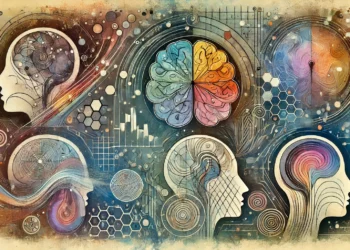Social anxiety is one of the banes of modern life. It happens so often and for so many people that it’s hard to simply ignore it. Now, a team of German researchers has revealed that the cause might be different to what we thought.

It might not be our upbringing and social habits that cause social anxiety, but our genes. For many people, being in large groups or speaking in front of other people causes stuttering, heart palpitations, shortness of breath, or trembling. This type of social phobia was generally thought to have environmental or psychological triggers, though genetic factors were also considered.
“There is still a great deal to be done in terms of researching the genetic causes of this illness,” says Dr. Andreas Forstner from the Institute of Human Genetics at the University of Bonn. “Until now, only a few candidate genes have been known that could be linked to this.”
Forstner and his colleagues from the Clinic and Policlinic for Psychosomatic Medicine and Psychotherapy at the University Hospital Bonn analyzed the DNA of 321 people who suffered from social anxiety and compared it to 804 control individuals. They focused on something called single nucleotide polymorphisms (SNPs) — the variability of DNA positioning in various people.
It’s estimated that there are over 13 million such variations in the human genome, and some of them have been discussed in regards to social phobia. In total, Forstner looked at 24 SNPs linked to mental disorders. This is the largest such study ever conducted on social anxiety.
“The result substantiates indications from previous studies that serotonin plays an important role in social phobia,” says associate professor (Privatdozent) Dr. Rupert Conrad from the Clinic and Policlinic for Psychosomatic Medicine and Psychotherapy.
They found that especially one SNP, in the serotonin transporter gene SLC6A4, is associated with the condition. The role of SLC6A4 has been linked to a number of conditions, including alcoholism, clinical depression, obsessive-compulsive disorder (OCD), as well as romantic love. It makes a lot of sense that something connected to serotonin is linked to the condition. Serotonin is well known to suppress negative feelings such as feelings of fear and depression. For a long time, doctors have treated depression and anxiety by increasing the concentration of serotonin in the brain, so it makes sense that serotonin also affects social phobia.

For the future, researchers want to test their hypothesis with an even longer study — but they need volunteers. If you suffer from social anxiety or know someone who does, consider their next effort. Participating in the study can make a big difference for understanding the condition.
“In order to achieve this goal, we need many more study participants who suffer from social anxiety,” says the psychologist and study coordinator Stefanie Rambau from the Clinic and Policlinic for Psychosomatic Medicine and Psychotherapy at University Hospital Bonn. Information about the study is available at http://www.SocialPhobiaResearch.de [site in GERMAN — go to ‘Kontact’ to send them a message’. “Those who take part will help to research social phobia. This is the basis of better diagnosis and treatment procedures in the future,” says Stefanie Rambau.
Although the link between serotonin and depression and anxiety has been thoroughly documented, researchers are still unsure about the driver of the cause-effect process. Is it a decrease in serotonin the cause of these issues, or do depression and anxiety cause a decrease in serotonin?
To make things even more interesting, a 2015 study found that anxiety was correlated to more serotonin production, not less. Not only did socially anxious people produce more serotonin, but they also pumped more of it back, probably to compensate for the extra production. Together, these two studies paint an interesting picture of how serotonin and its transporters affect anxiety and related issues. There’s still much work to be done.
Journal Reference: Andreas J. Forstner, Stefanie Rambau, Nina Friedrich, Kerstin U. Ludwig, Anne C. Böhmer, Elisabeth Mangold, Anna Maaser, Timo Hess, Alexandra Kleiman, Antje Bittner, Markus M. Nöthen, Jessica Becker, Franziska Geiser, Johannes Schumacher, Rupert Conrad — Further evidence for genetic variation at the serotonin transporter gene SLC6A4 contributing toward anxiety. Psychiatric Genetics, 2017; 1 DOI: 10.1097/YPG.0000000000000171






